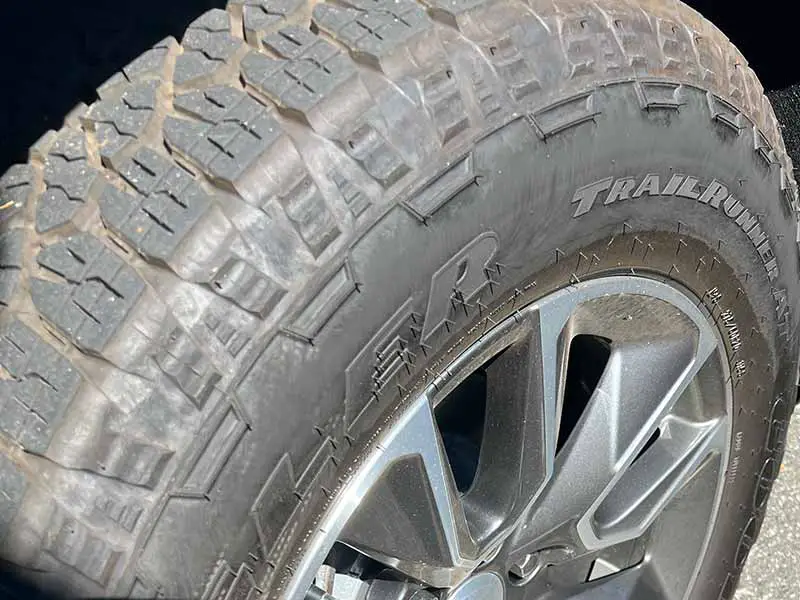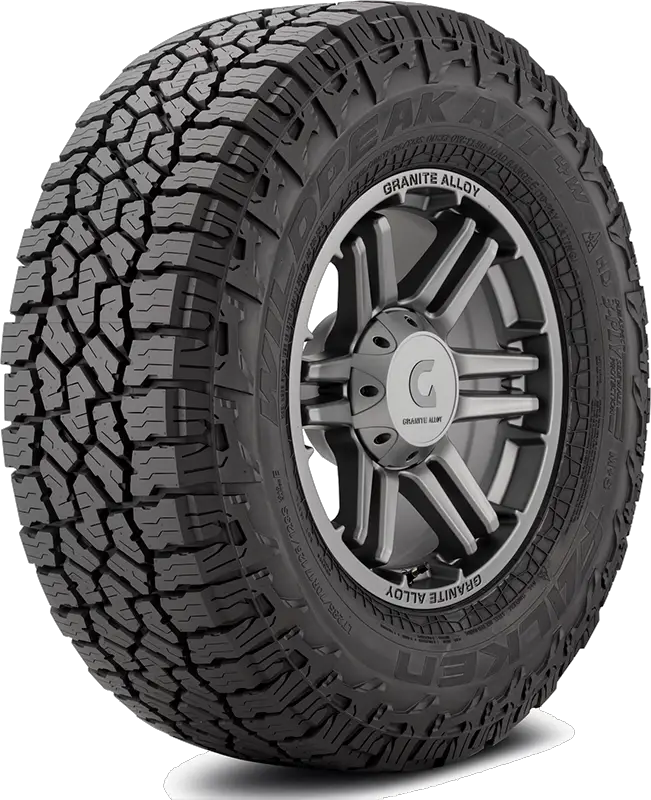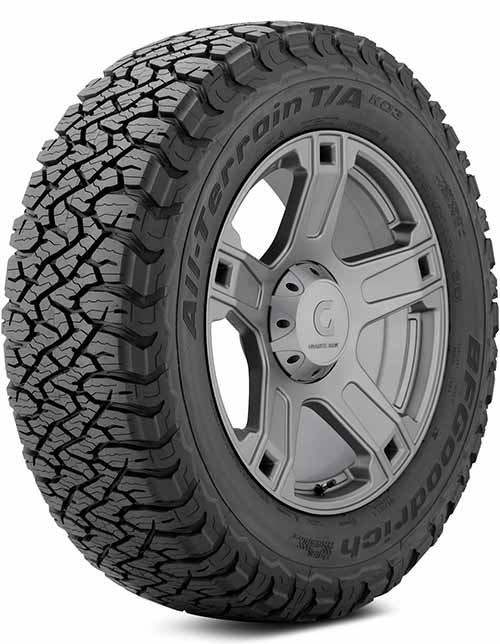Choosing the right tire can be tricky, especially when it’s between HT and LT tires. It’s not just letters; it’s about matching your driving adventures with the right kind of rubber.
What Is The Difference Between HT And LT Tires?
HT tires are great for everyday driving, offering a smooth and quiet ride on paved roads. In contrast, LT tires are built tough, designed for off-road terrains and carrying heavy loads, ensuring you’re ready for rugged adventures.
In this article, we’ll dive into the specifics of HT and LT tires, exploring their unique features, comparing their performance, and providing tips to help you choose the right tire for your vehicle and adventures.
Let’s take a closer look.

What Are HT Tires?
HT tires, or Highway Terrain tires, are like the all-season touring tires of the tire world. They’re designed to provide a smooth, quiet ride, primarily for vehicles that spend most of their time on paved roads. Imagine them as your everyday sneakers – comfortable, reliable, and perfect for most occasions.
Key Characteristics of HT Tires
Design Elements
- Tread Design: HT tires typically have a symmetrical tread pattern, which means the left and right sides of the tire are mirror images. This design is all about:
- Providing a smooth and quiet ride.
- Offering good stability and handling.
- Rubber Composition: The rubber in HT tires is formulated to provide:
- Optimal performance in various weather conditions, from sunny days to light snowfalls.
- A balance between grip on wet roads and durability over time.
Performance Quirks
- On the Road: HT tires shine on highways and city streets, providing:
- Stable handling at high speeds.
- Efficient water evacuation to prevent hydroplaning in wet conditions.
- Off the Road: While they can handle the occasional gravel path, they’re not designed for regular off-road adventures.
Durability and Lifespan
- Mileage: HT tires tend to come with generous treadwear warranties, reflecting their ability to go the distance.
- Maintenance: Regular rotations and proper inflation will help ensure you get the most out of your HT tires.
Ideal Usage Scenarios for HT Tires
Best Suited For:
- Vehicles: Sedans, CUVs (Crossover Utility Vehicles), and SUVs that primarily stick to paved roads.
- Driving Conditions: Regular city and highway driving, with the occasional light off-road excursion.
Not the Best Choice For:
- Heavy Off-Roading: Those who frequently venture into rough terrains might need a tire with a more aggressive tread design.
- Heavy Loads: If you’re consistently hauling heavy loads, a tire designed for heavier duty might be in order.
A Little Story to Illustrate
Imagine you’re planning a road trip. Your journey will mostly be on well-paved highways, with perhaps a short detour along a gravel path to reach a hidden hiking spot. HT tires are like your reliable travel companion, ensuring you have a smooth, comfortable ride for the majority of your journey, with enough versatility to handle that short, slightly bumpy detour.
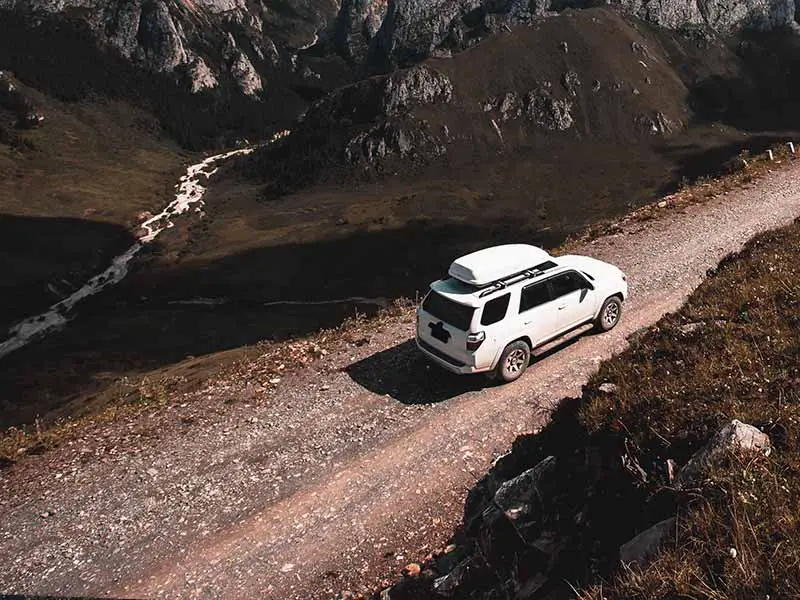
What Are LT Tires?
LT tires, standing for Light Truck tires, are crafted with robustness in mind. They’re the sturdy, reliable friends that you’d want by your side when venturing into challenging terrains or when you need to carry heavy loads. They’re not just for trucks, but for any vehicle that demands added durability and strength from its tires.
Key Characteristics of LT Tires
Robust Design Features
- Tread Design: LT tires boast a more aggressive tread design, which is all about:
- Providing traction on unpaved paths like mud, sand, and gravel.
- Ensuring stability and control when carrying heavy loads.
- Sidewall Construction: The sidewalls of LT tires are reinforced to:
- Handle heavier loads without losing shape.
- Resist damages from off-road obstacles like rocks and debris.
Performance Aspects
- On the Road: While LT tires can handle paved roads, they might offer:
- A firmer ride compared to HT tires due to their robust construction.
- Slightly more road noise due to the aggressive tread pattern.
- Off the Road: This is where LT tires truly shine, offering:
- Superior traction on various off-road surfaces.
- Enhanced puncture resistance in rough conditions.
Durability and Lifespan
- Mileage: LT tires are built to endure, but their lifespan can be influenced by:
- The harshness of the terrains they navigate.
- The weight of the loads they carry.
- Maintenance: Keeping an eye on tire pressure and ensuring they’re properly aligned will prolong their life.
Ideal Usage Scenarios for LT Tires
Perfectly Suited For:
- Vehicles: Trucks, SUVs, and vans that are often laden with heavy loads or tow trailers.
- Driving Conditions: Regular off-road adventures or driving through challenging terrains like mud, snow, and gravel.
Might Not Be Ideal For:
- Quiet Rides: If a quiet, smooth ride is a top priority, the robustness of LT tires might be a bit of an overkill.
- Fuel Efficiency: The sturdy build and aggressive tread can impact fuel economy.
A Tale to Illustrate
Imagine planning a camping trip in a remote, serene location, accessible only through a muddy, rocky path. Your vehicle is packed with camping gear, food supplies, and perhaps a small trailer with a boat. LT tires are like the sturdy, reliable hiking boots that ensure you, and your heavy load, traverse through the challenging path securely and efficiently, making sure no obstacle prevents you from reaching that peaceful lakeside view.
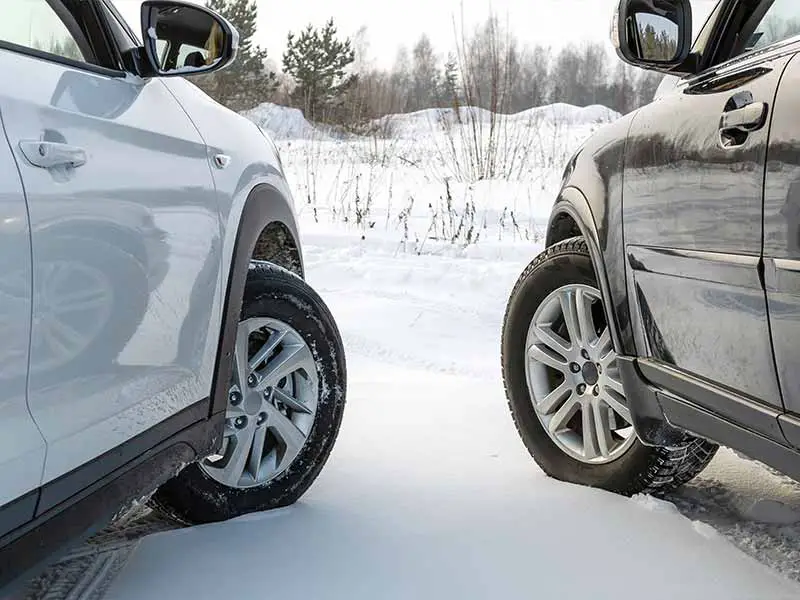
HT vs LT Tires
Navigating through the tire world, we’ve explored the realms of HT and LT tires separately. Now, let’s bring them side by side and delve into a comparative analysis. It’s like comparing sneakers to hiking boots – each has its own strengths and ideal environments. Let’s explore, shall we?
Performance Comparison
On the Road
- HT Tires:
- Smooth Operators: They offer a quiet and smooth ride on paved roads.
- Fuel Efficiency: Generally, provide better fuel efficiency due to their lighter construction and tread design.
- LT Tires:
- Rough and Tough: They can handle paved roads but might be a bit noisier and offer a firmer ride.
- Fuel Considerations: Might be slightly less fuel-efficient due to their robust build.
Off the Road
- HT Tires:
- Light Adventurers: Can handle light off-road paths but aren’t designed for regular off-road use.
- LT Tires:
- Off-Road Champions: Crafted to confidently navigate through various off-road terrains and obstacles.
Durability and Lifespan
Mileage and Wear
- HT Tires:
- Long-Runners: Often come with generous treadwear warranties and are designed for longevity on paved roads.
- LT Tires:
- Enduring Warriors: Built to withstand harsh conditions, but their lifespan can be influenced by the severity of use.
Maintenance Needs
- HT Tires:
- Low-Key: Generally require basic tire maintenance like rotations and pressure checks.
- LT Tires:
- Attentive: Might need more frequent checks, especially when used in harsh conditions, to ensure optimal performance and safety.
Cost Implications
Initial Investment
- HT Tires:
- Budget-Friendly: Typically, come with a lower initial price tag.
- LT Tires:
- Investment Pieces: Might be pricier upfront due to their robust construction and materials.
Long-Term Value
- HT Tires:
- Consistent Performers: Offer reliable performance and durability for everyday driving conditions.
- LT Tires:
- Rugged Reliability: Provide value in durability and performance, especially in demanding conditions and heavy usage.
Safety Aspects
Load and Towing
- HT Tires:
- Light to Moderate: Ideal for everyday loads and occasional light towing.
- LT Tires:
- Heavy Haulers: Designed to safely handle heavy loads and regular towing.
Weather and Terrain Adaptability
- HT Tires:
- Fair-Weather Friends: Perform well in various weather conditions but might struggle in extreme scenarios.
- LT Tires:
- All-Weather Allies: Crafted to handle various weather conditions and terrains confidently.
A Tale of Two Tires
Imagine planning two different vacations. The first is a road trip along scenic highways with a few city stops, while the second is a rugged adventure to a remote mountainous location, towing a trailer with all your adventure gear. HT tires would be your companion for the first journey, ensuring a smooth, efficient ride on the highways. For the second, LT tires would be your ally, confidently navigating through rough terrains and securely carrying your heavy load.
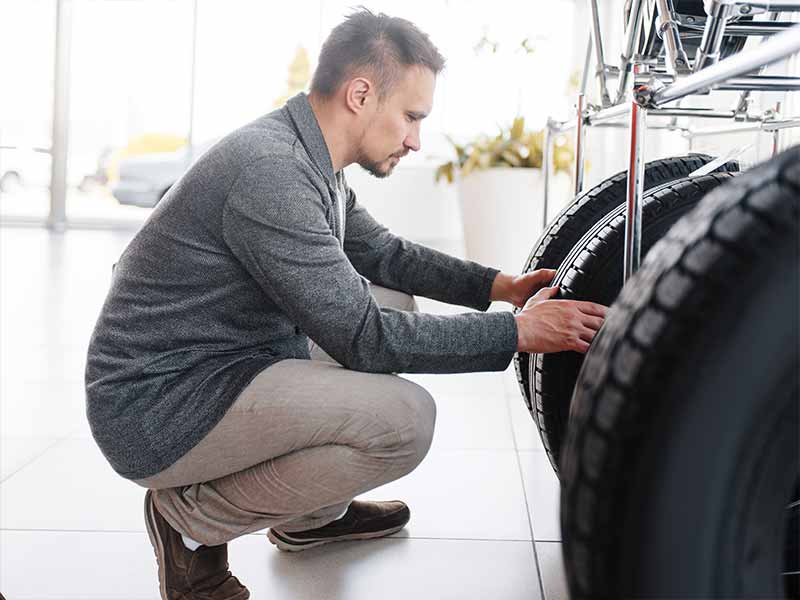
Making the Right Choice
Embarking further into our tire journey, we now stand at a crossroads: choosing between HT and LT tires. It’s akin to choosing between a comfortable sneaker and a sturdy hiking boot, each offering unique benefits depending on the journey ahead. Let’s explore how to make that choice, ensuring your vehicle is always ready for the adventures that lie ahead.
Understanding Vehicle Needs
Analyzing Driving Patterns
- Daily Commutes: If your vehicle primarily treads on city streets and highways, HT tires might be your go-to.
- Adventurous Escapades: For those who frequently venture into off-road terrains or carry heavy loads, LT tires might be the ally you need.
Considering Load Requirements
- Light to Moderate: If your vehicle usually carries light to moderate loads, HT tires might suffice.
- Heavy and Hefty: For consistently heavy loads or towing duties, LT tires might be indispensable.
Expert Tips for Tire Selection
Weather and Seasonality
- All-Season Driving: HT tires are generally adept at handling various weather conditions encountered during city and highway driving.
- Harsh Conditions: If you often drive in extreme weather or challenging terrains, LT tires might offer the robustness you need.
Budget and Economy
- Initial Costs: HT tires might be lighter on the wallet initially, offering a cost-effective solution for general use.
- Long-Term Investment: While LT tires might demand a higher upfront cost, their durability in harsh conditions might offer value in the long run.
Ride Comfort and Noise
- Smooth and Quiet: If a quiet, smooth ride ranks high on your priority list, HT tires might be the preferable choice.
- Sturdy and Steady: If you’re willing to trade off some ride comfort for durability and off-road performance, LT tires stand ready.
Resources
Below are some links you may find helpful when learning about tires
- H/T light truck market: Versatility is key – Tire Review
- How to choose the right truck tire – Les Schwab
Final Thoughts
Navigating through HT and LT tires, we’ve learned that HT tires are your reliable buddies for smooth city and highway drives, while LT tires are your sturdy pals for off-road adventures and heavy-duty tasks.
Your choice between them should align with your driving needs, ensuring every trip is safe and smooth. Whether it’s a calm drive with HT tires or a rugged journey with LT tires, may your drives be safe and your adventures exciting.
Good luck and happy motoring.
